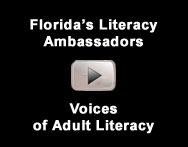What is Health Literacy?
Health literacy is defined as: the degree to which individuals have the capacity to obtain, communicate, process and understand the basic health information and services needed to make appropriate health decisions.
| –The Patient Protection and Affordable Care Act, 2010 |
Patients need to:
- Read and understand complex health information
- Complete health forms Comprehend and follow the doctor’s advice
- Weigh the benefits and risks of medical procedures
- Use math to calculate medicine dosage
- Understand health insurance options
- Navigate health facilities
- Find and access health information on their own
The Challenge
Only 12 percent of adults have proficient health literacy, according to the National Assessment of Adult Literacy (NAAL). In other words, nearly nine out of ten adults may lack the skills needed to manage their health and health care . This means that more than 90 million people in the United States have a hard time understanding and using health information.
Low literacy has been linked to poor health outcomes such as higher rates of hospitalization and chronic diseases and limited knowledge and use of preventive services (see Fact Sheet: Health Literacy and Health Outcomes).
According to NAAL
- Approximately 36% of adults in the United States have limited health literacy-22% have Basic and 14% have Below Basic health literacy.
- When looking at older adults, 23 % of those more than 64 years of age had below basic prose literacy .
- Racial and ethnic minorities had lower average health literacy scores than White adults. Compared with 9% of White adults, 24% of Blacks, 41% of Hispanics, 13% of Asians, and 25% of American Indian and Native Alaskan respondents scored at the "Below Basic" level.
- More than 76% of those who did not complete high school scored at the "Below Basic" or "Basic" level of health literacy.
- 42% of the people who reported their health status as poor and 33% of the people who reported their health status as fair scored at the "Below Basic" level.
The Risks
People with low health literacy are:
- More likely to use emergency rooms and to be hospitalized
- More likely to have medication and treatment errors
- More likely to have chronic diseases
- Less likely to follow their treatment plans
- Less likely to understand common insurance terms
- Less likely to obtain preventative care
The Cost
Low health literacy costs the U.S. economy between $106 billion and $236 billion annually. This represents between 7 % and 17 % of all personal health care expenditures. To put this in perspective, the cost represents an amount equal to the cost of insuring every one of the more than 47 million people who lacked coverage in the United States.
- Low Health Literacy: Implications for National Health Policy, 2007. |












